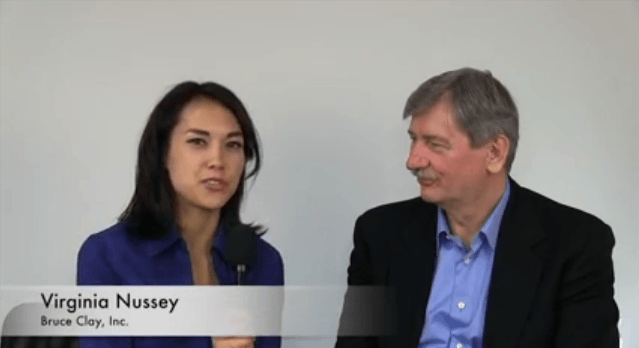In the past year, a lot has been done to Google’s search algorithm that has almost entirely changed the landscape of modern SEO and search visibility. No longer will blackhat link building strategies work to boost page rank, rather, the focus now lies almost exclusively on content and end user experience.
Thankfully, Bruce Clay and Virginia Nussey of Bruce Clay, Inc. stopped by Search Engine Journal to talk more in depth about the recent changes to search engines and SEO, and offer their expert insights into how to adapt to a changing online environment.
In the first segment of the video interview, Bruce talks a little bit about how certain features such as ratings systems can factor into a site’s ranking, which eventually leads him into describing how Google looks at structured data to identify quality content and assign search priority to a webpage.
“You can highlight all kinds of data,” he explained, “not just dates, not just events, but there’s a lot of stuff that they’re extending. The fundamental purpose of this is to allow the user who does the query to gain as much information as they possibly can right there in the search results, often bypassing the need to even go to a website, and that, I think, is really going to be the risk we as website owners all face. If we give enough information to Google, and Google is able to represent that in search results, the number of visitors to our websites will diminish.”
Obviously, this poses a risk to all website owners, but also places even more emphasis on the importance of search rankings. If users aren’t even going to visit a page after searching for information, it’s highly unlikely that they will dig deeper than the first page of search results.
“It’s a two-edged sword,” Bruce exclaims, “right now, I want to perform better in the search results and I want the people that see it to see me as more of an expert and answer more of their questions, I really want to do all of these good things, but at the same time I recognize that if I give Google all of this information, Google doesn’t need me anymore.”
The inherent challenge that Google’s latest changes represents is that, they are essentially taking information from websites and repurposing it for users so that they don’t have to leave the search results page. Obviously this is a huge dilemma that webpage owners face because it means that the more information they put out there, the fewer visitors they will get in the future because Google is slowly eliminating the need to visit those sites. While this may improve the end user experience, it also provides website owners with a massive problem in regards to the future of their sites.
For more information about these changes, tune into the full video at the top of the page.


